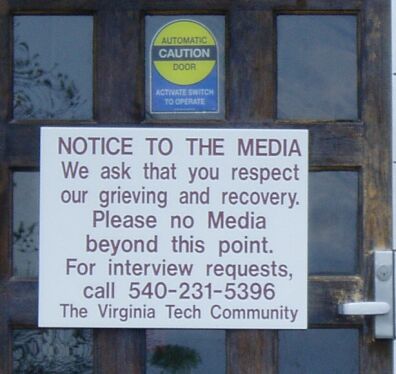
A colleague of mine has a son who is a senior in engineering at VPI, who was fortunately not on campus when the shooting occurred. He was traumatized nonetheless, as were all the students, and my colleague drove down from DC to Blacksburg this past weekend to see how he and his friends were doing. He took some pictures of the improvised memorials.

While not as moving or lovely, this is the one that interested me the most. Such a sign was apparently on the door of every campus building, to keep away the ghouls. I don’t think you’ll see this picture in the papers.

